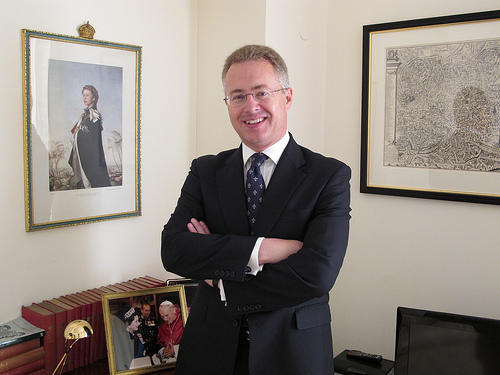26th February 2015
Spiritual retreats and daily business

This week, the Pope and the senior members of the Roman Curia are away on spiritual retreat. There are not many governments that take all their senior members away from the fray of the day-to-day for a whole week of reflection, and even here the Blackberries and smart-phones may not be entirely switched off. But I think it is good practice. In this world dominated by a 24 hour news cycle, and constant pressures around the clock, decision-makers need occasionally to step away to recharge batteries, and consider the bigger picture.
I was asked the other day what embassies to the Holy See do when the “government” to which we are accredited is away. The answer is quite a lot. First of all, of course, there are many Holy See officials who remain at their posts. Just this week I have been talking to officials in the Secretary of State about a number of issues: the British chairmanship of the International Holocaust Remembrance Alliance, and the Holy See’s relationship with that organisation; ways in which Britain and the Holy See can work together on the post-2015 international development negotiations ongoing at the UN; and collaboration on efforts against the death penalty. These were just three of the issues on our agenda.
As always, we have also been talking to the wider Holy See network. I had an opportunity to meet Archbishop Shevchuk, head of the Ukrainian Greek Catholic bishops, about the terrible situation in his country. We have been in conversation with the English Catholic charity CAFOD about climate change, and how the Pope’s much anticipated encyclical on the environment will impact the UN climate change negotiations that culminate in December this year in Paris. Later this week, EU Ambassadors will meet the Secretary General of the Commission of the Bishops’ Conferences of the European Community to learn more about how the European bishops engage with and influence the Brussels-based EU institutions. And I have had a chance to consider with a number of financial experts the Holy See’s internal reform of financial structures and management.
Not least, we have also been able to enjoy a little active reflection of our own. I have been able to work on a number of speeches I will give in the next month or so – including the Bishop Dunn Memorial Lecture at Durham on 4 March – and to plan embassy events that will take place later this year. We have also been able to spend time as an embassy team to consider our training and development needs for the next year, a vital task for any well functioning office.
The Holy See, with its ancient history, its spiritual retreats, its particular language, its dress, and unusual duality as administration and Church, can sometimes seem esoteric to an outsider. However, in essence, it functions like other organisations, and needs to be as grounded in the real world as any other government, albeit with that special, “universal” perspective which few others can replicate. It certainly keeps my own small embassy team busy. Even when the Pope is on retreat.